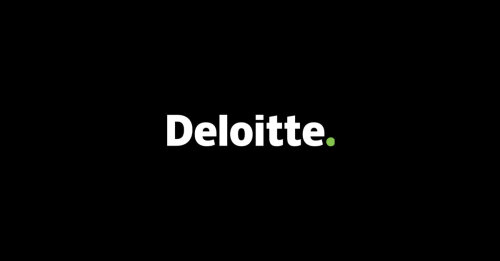Best Biotechnology Lawyers in Oslo
Share your needs with us, get contacted by law firms.
Free. Takes 2 min.
List of the best lawyers in Oslo, Norway
About Biotechnology Law in Oslo, Norway
Biotechnology is a rapidly growing field in Oslo, Norway, characterized by the use of living organisms or their processes to develop healthcare products, vaccines, biofuels, and other essential innovations. Norway has a robust biotechnology sector, supported by rigorous scientific research and state-of-the-art facilities. The legal framework governing biotechnology in Oslo ensures that advancements in this field comply with ethical standards, protect intellectual property, and adhere to environmental regulations.
Why You May Need a Lawyer
Seeking legal advice in biotechnology can be crucial in various situations, such as:
- Securing intellectual property rights for new biotechnological inventions and innovations.
- Navigating the complex regulatory requirements associated with the development and distribution of biotech products.
- Ensuring compliance with environmental and safety regulations to avoid legal and financial repercussions.
- Addressing legal issues related to bioethical considerations and clinical trials.
- Managing licensing agreements and collaborations with other research entities and companies.
- Resolving disputes involving biotech patents and trade secrets.
Local Laws Overview
The legal landscape of biotechnology in Oslo encompasses various laws and regulations. Key aspects include:
- Patent Law: Governs the protection of biotechnological inventions to secure intellectual property rights.
- Environmental Regulations: Institutions must comply with Norwegian laws to ensure that biotechnological practices do not harm the environment.
- Clinical Trials Laws: Regulate the ethical and procedural conduct of clinical trials involving biotech products.
- Data Protection Laws: Ensure the confidentiality and security of sensitive biological data and personal information.
- Bioethics: Establishes ethical standards for biotechnological research and development to protect human and animal rights.
- Commercialization and Licensing: Regulate the agreements and practices involved in bringing biotechnological products to market.
Frequently Asked Questions
What is biotechnology?
Biotechnology involves the use of living organisms or their systems to develop products for healthcare, agriculture, and industrial applications.
Why is intellectual property important in biotechnology?
Intellectual property rights protect innovations and inventions, enabling companies and researchers to secure the economic benefits of their discoveries.
How is biotechnology regulated in Oslo, Norway?
Biotechnology in Oslo is regulated by a combination of national and European Union laws, focusing on patents, environmental impact, ethical standards, and clinical trials.
What are the ethical considerations in biotechnology?
Ethical considerations include ensuring informed consent, protecting human and animal welfare, and balancing the benefits and risks of biotechnological advancements.
What are the steps to patent a biotechnology invention in Norway?
You need to file a patent application with the Norwegian Industrial Property Office (NIPO), providing detailed descriptions and claims of your invention.
Can I collaborate with international biotech companies?
Yes, but it's essential to navigate international laws and regulations, and secure appropriate agreements to protect your interests and comply with legal standards.
What are the risks of non-compliance with biotech regulations?
Non-compliance can lead to legal penalties, financial losses, and reputational damage, as well as potential harm to public health and the environment.
How can a lawyer help with clinical trials in biotechnology?
A lawyer can assist in ensuring that clinical trials comply with regulatory requirements, ethical standards, and data protection laws, minimizing legal risks.
What resources are available for biotech startups in Oslo?
There are various governmental grants, incubators, and industry associations that offer support, funding, and networking opportunities for biotech startups.
What should I consider when licensing a biotechnology product?
Key considerations include the terms of the agreement, intellectual property rights, confidentiality clauses, and compliance with relevant laws and regulations.
Additional Resources
For further information and assistance, the following resources can be helpful:
- Norwegian Industrial Property Office (NIPO)
- Norwegian Biotechnology Advisory Board
- Oslo Cancer Cluster
- Innovation Norway
- University of Oslo Biotechnology Center
- Norwegian Medicines Agency (NoMA)
Next Steps
If you need legal assistance in biotechnology, consider the following steps:
- Identify your specific legal needs related to your biotechnological ventures.
- Research and select a law firm or legal expert specializing in biotechnology law.
- Prepare and organize all relevant documentation and details of your case.
- Schedule a consultation to discuss your situation and explore potential solutions.
- Follow the legal advice provided to ensure compliance and protect your interests.
Remember, having professional legal guidance is essential in navigating the complex and evolving field of biotechnology in Oslo, Norway.
Lawzana helps you find the best lawyers and law firms in Oslo through a curated and pre-screened list of qualified legal professionals. Our platform offers rankings and detailed profiles of attorneys and law firms, allowing you to compare based on practice areas, including Biotechnology, experience, and client feedback.
Each profile includes a description of the firm's areas of practice, client reviews, team members and partners, year of establishment, spoken languages, office locations, contact information, social media presence, and any published articles or resources. Most firms on our platform speak English and are experienced in both local and international legal matters.
Get a quote from top-rated law firms in Oslo, Norway — quickly, securely, and without unnecessary hassle.
Disclaimer:
The information provided on this page is for general informational purposes only and does not constitute legal advice. While we strive to ensure the accuracy and relevance of the content, legal information may change over time, and interpretations of the law can vary. You should always consult with a qualified legal professional for advice specific to your situation.
We disclaim all liability for actions taken or not taken based on the content of this page. If you believe any information is incorrect or outdated, please contact us, and we will review and update it where appropriate.









